“I Gave a Homeless Woman Shelter in My Garage, But What I Found When I Entered Unannounced Shocked Me”
A wealthy, emotionally distant man offers shelter to Lexi, a homeless woman, and is moved by her resilience. Their unexpected connection deepens, but one day, when he enters his garage without warning, he uncovers something unsettling. The discovery raises questions about who Lexi truly is and what she’s concealing.
Despite having all the material wealth anyone could desire—an expansive estate, luxury cars, and endless money—I felt an emptiness that no possession could fill. I had never experienced true family, as women seemed more interested in my inherited fortune than in me. At sixty-one, I found myself regretting the choices I had made, wishing I had lived a different life.
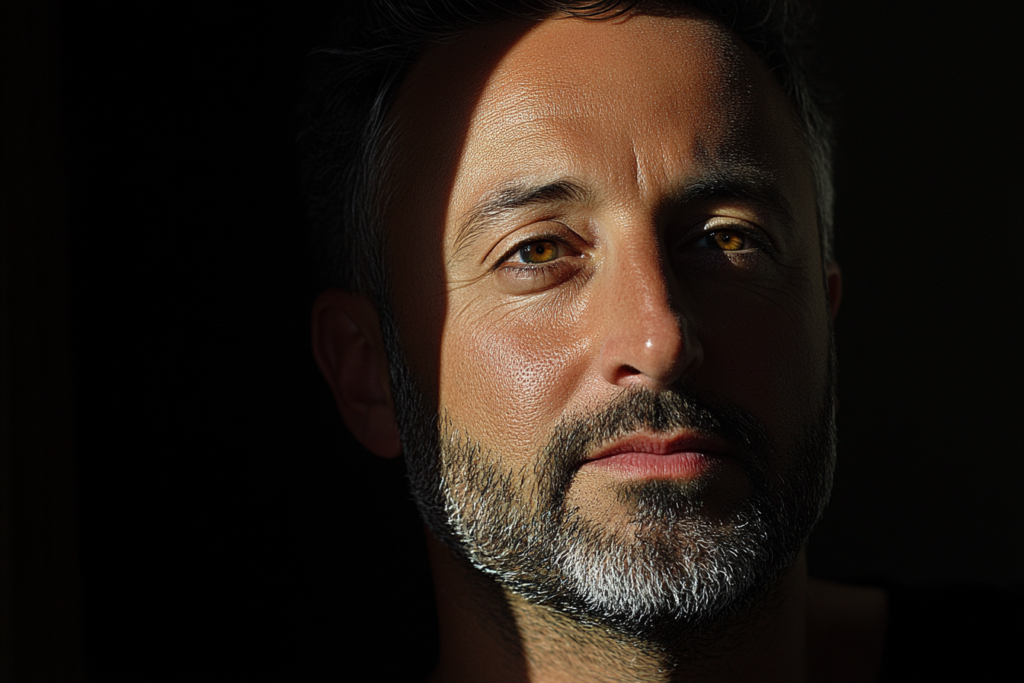
As I absentmindedly tapped the steering wheel, trying to shake off the heaviness in my chest, I noticed a disheveled woman hunched over a trash can. I slowed down, unsure why I felt the need to stop—after all, there were countless people like her everywhere. Yet something about the way she moved, her thin arms rummaging through the garbage with such grim determination, stirred something deep inside me.
She appeared fragile, yet there was a fierce strength in her—like she was clinging to survival with nothing but sheer willpower.
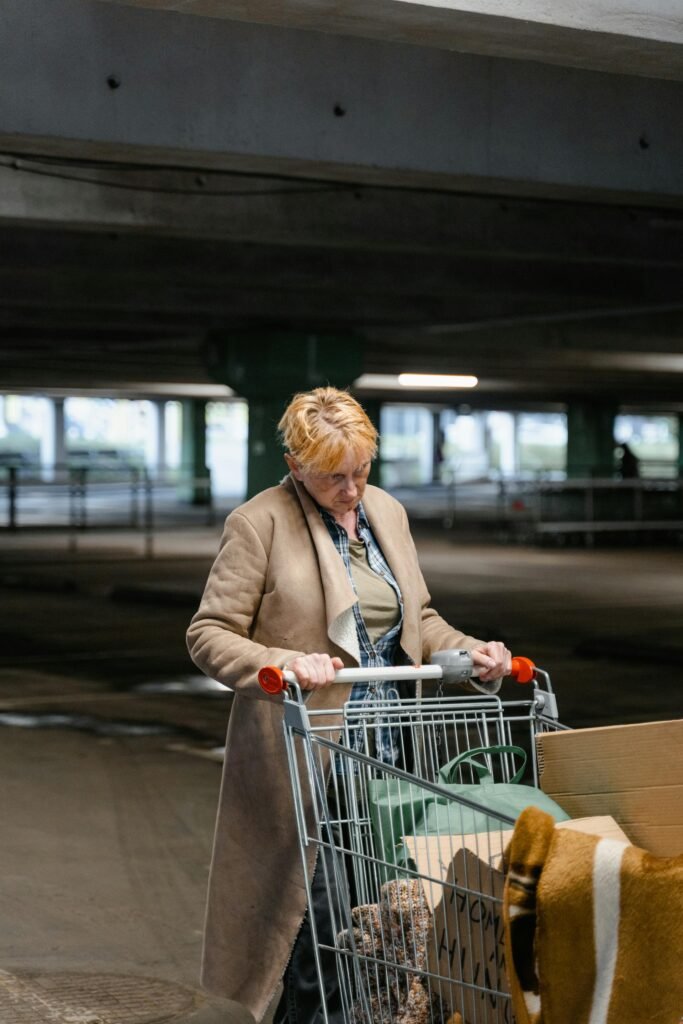
Before I knew it, I had pulled over, the engine purring as I rolled down the window, observing her from the comfort of my car.
She looked up, startled, her eyes wide with surprise. For a brief moment, I thought she might run, but she didn’t. Instead, she straightened up, brushing her hands on her worn jeans.
“Do you need some help?” I asked, my voice sounding foreign to me. It wasn’t like me to speak to strangers, let alone invite trouble into my life.
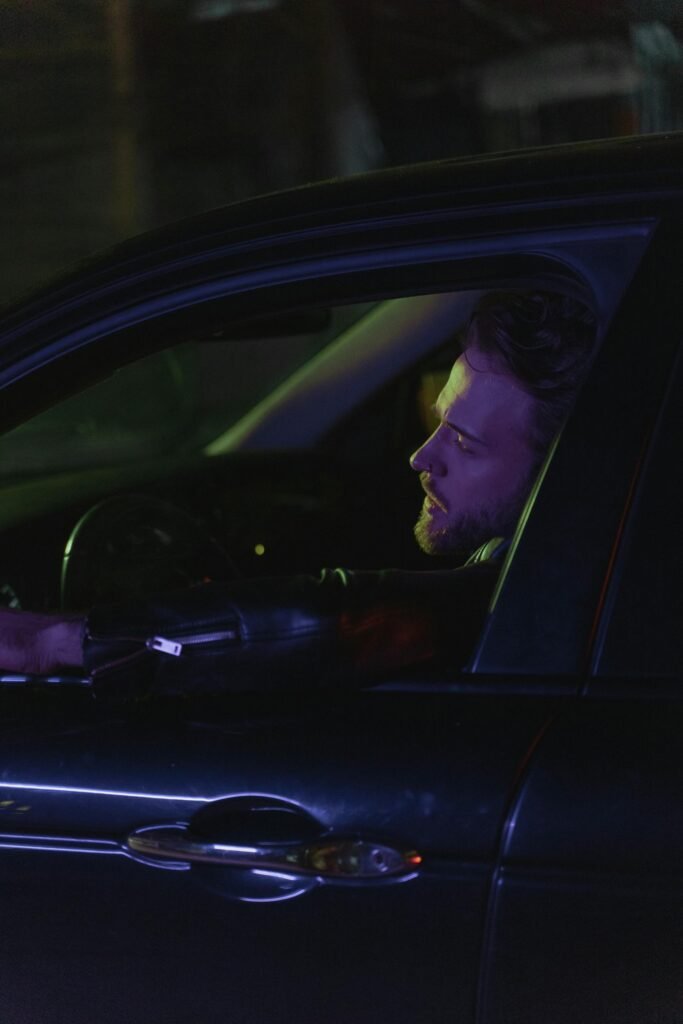
“You’re offering?” Her voice had a sharp edge to it, but there was also a weariness, as though she’d heard empty promises too many times before.
“I don’t know.” The words slipped out before I could stop them. I stepped out of the car. “I just saw you there and… well, it didn’t feel right.”
She crossed her arms, never breaking eye contact. “What’s not right is life,” she said with a bitter laugh. “And cheating, no-good husbands, in particular. But you don’t seem like someone who’d know much about that.”
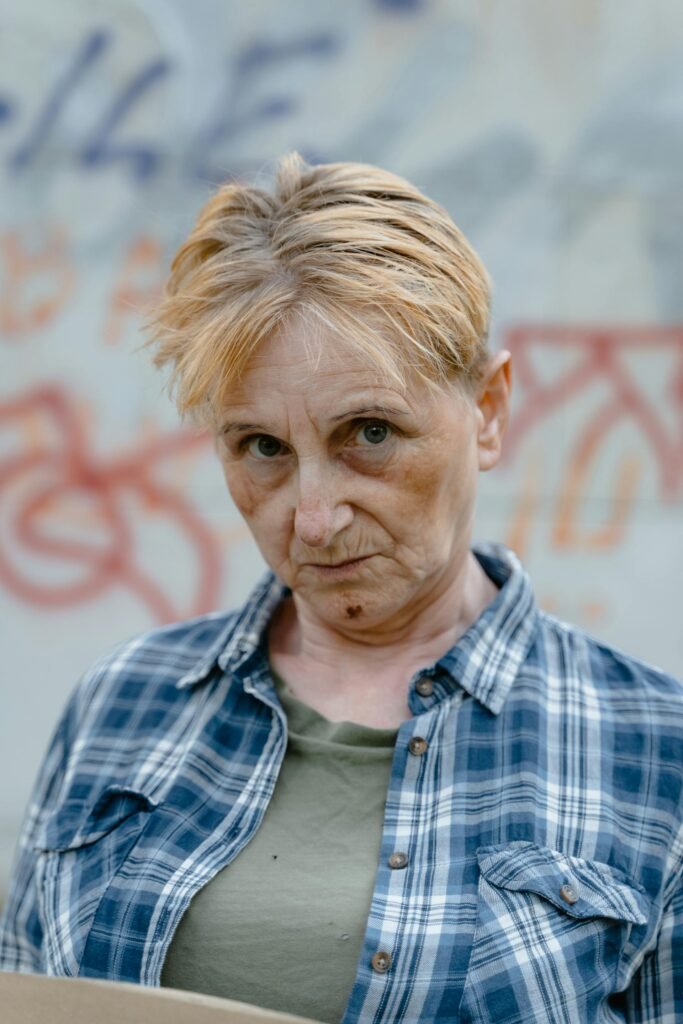
I winced, knowing she was right.
“Maybe not.” I paused, unsure of how to continue. “Do you have a place to go tonight?”
She hesitated, her eyes briefly darting away before locking back onto mine. “No.”
The word hung in the air, heavy and final. It was all I needed to hear.

“Look, I have a garage. Well, it’s more like a guest house. You can stay there until you get back on your feet.”
I half-expected her to laugh in my face, to tell me to go to hell. But instead, she just blinked, her tough exterior starting to soften.
“I don’t take charity,” she said, her voice quieter now, tinged with vulnerability.
“It’s not charity,” I replied, though I wasn’t entirely sure what it was. “It’s just a place to stay. No strings attached.”

“Okay. Just for a night,” she replied. “I’m Lexi, by the way.”
The drive back to the estate was silent. She sat in the passenger seat, staring out the window, her arms wrapped around herself like a shield.
When we arrived, I led her to the garage-turned-guest-house. It wasn’t much, but it was enough for someone to stay in.
“You can stay here,” I said, motioning to the small space. “There’s food in the fridge, too.”
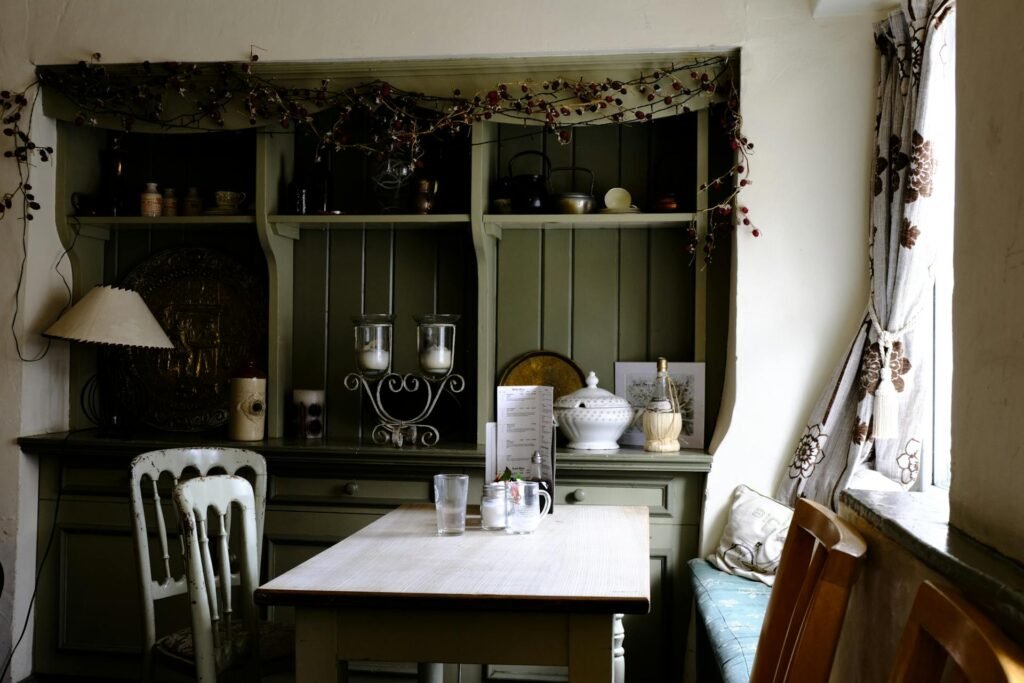
“Thanks,” she muttered.
Over the next few days, Lexi stayed in the garage, but we shared occasional meals. I couldn’t quite figure it out, but something about her intrigued me.
Maybe it was her resilience, how she kept going despite everything life had thrown at her. Or perhaps it was the loneliness in her eyes, so similar to my own. Maybe it was just the fact that I didn’t feel so alone anymore.
One night, as we sat across from each other at dinner, she started to open up.

“I used to be an artist,” she said, her voice soft. “Well, I tried to be, anyway. I had a small gallery, a few shows… but it all fell apart.”
She laughed, but it was hollow, lacking any real joy. “Life happened. My husband left me for some younger woman he got pregnant and kicked me out. My whole life unraveled after that.”

“I’m sorry,” I muttered.
She shrugged. “It’s in the past.”
But I could tell it wasn’t, not really. The pain was still there, just beneath the surface. I recognized that feeling all too well.
As the days went by, I found myself looking forward to our conversations.

Lexi had a sharp wit and a biting sense of humor that cut through the gloom of my empty estate. Slowly, the hollow space inside me seemed to shrink.
But everything changed one afternoon. I had been rushing around, trying to find the air pump for one of my car tires. Without thinking, I barged into the garage, expecting to grab it quickly and leave. But what I saw stopped me in my tracks.
There, spread across the floor, were dozens of paintings. Of me.

Or rather, grotesque versions of me. One painting depicted me with chains around my neck, another with blood pouring from my eyes. In the corner, there was one of me lying in a casket.
A wave of nausea hit me. This was how she saw me? After everything I had done for her?
I backed out of the room before she noticed, my heart pounding in my chest.

That night, as we sat down for dinner, I couldn’t shake the images from my mind. Every time I looked at Lexi, all I saw were those horrific portraits.
Finally, I couldn’t take it anymore.
“Lexi,” I said, my voice tight. “What the hell are those paintings?”
Her fork clattered onto her plate. “What are you talking about?”

“I saw them,” I said, my voice rising despite my best efforts to stay calm. “The paintings of me. The chains, the blood, the coffin. What the hell is that?”
Her face went pale. “I didn’t mean for you to see those,” she stammered.
“Well, I did,” I said coldly. “Is that how you see me? As some monster?”
“No, it’s not that.” She wiped at her eyes, her voice trembling. “I was just… angry. I’ve lost everything, and you have so much. It wasn’t fair, and I couldn’t help it. I needed to let it out.”

“So you painted me like a villain?” I asked, my voice sharp.
She nodded, shame washing over her face. “I’m sorry.”
I sat back, letting the silence stretch between us. I wanted to forgive her. I wanted to understand. But I couldn’t.
“I think it’s time for you to go,” I said, my voice flat.

Lexi’s eyes widened. “Wait, please—”
“No,” I interrupted. “It’s over. You need to leave.”
The next morning, I helped her pack her things and drove her to a nearby shelter. Neither of us said much along the way. When we arrived, I handed her a few hundred dollars before she stepped out of the car.
She hesitated, then took the money with trembling hands.
Weeks passed, and I couldn’t shake the feeling of loss. It wasn’t just because of the disturbing paintings, but because of what we’d shared before. There had been warmth and connection—something I hadn’t felt in years.
Then, one day, a package arrived at my door. Inside was a painting, but this one was different. It wasn’t grotesque or twisted. It was a serene portrait of me, captured with a peace I hadn’t known I possessed.
Tucked inside the package was a note, with Lexi’s name and phone number scrawled at the bottom.

My finger hovered over the call button, my heart racing faster than it had in years. It felt ridiculous to get worked up over a phone call, but I knew there was so much more riding on it than I was willing to admit.
I swallowed hard and hit “Call” before I could second-guess myself again. It rang twice before she picked up.
“Hello?” Her voice was hesitant, as if she somehow sensed it could only be me.
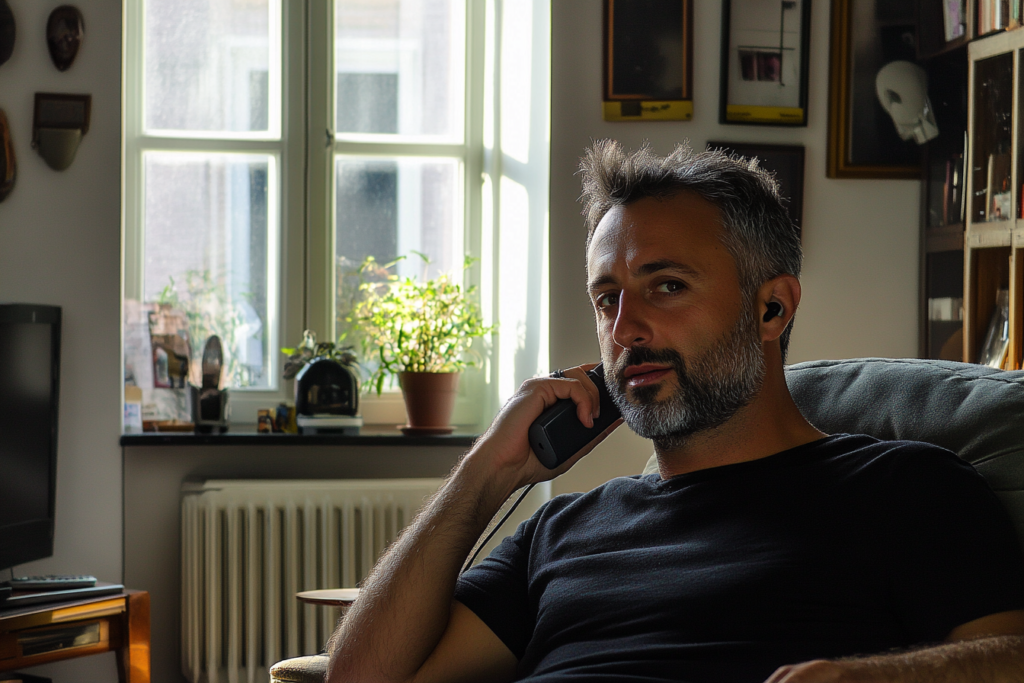
I cleared my throat. “Lexi. It’s me. I got your painting… it’s beautiful.”
“Thank you. I didn’t know if you’d like it. I figured I owed you something better than… well, those other paintings.”
“You didn’t owe me anything, Lexi. I wasn’t exactly fair to you, either.”
“You had every right to be upset.” Her voice was steadier now. “What I painted—those were things I needed to get out of me, but they weren’t about you, really. You were just… there. I’m sorry.”

“You don’t need to apologize, Lexi. I forgave you the moment I saw that painting.”
Her breath hitched. “You did?”
“I did,” I said, and I meant it. It wasn’t just the painting that changed my mind, it was the gnawing feeling that I had let something meaningful slip through my fingers because I was too afraid to face my pain. “And… well, I’ve been thinking… maybe we could start over.”
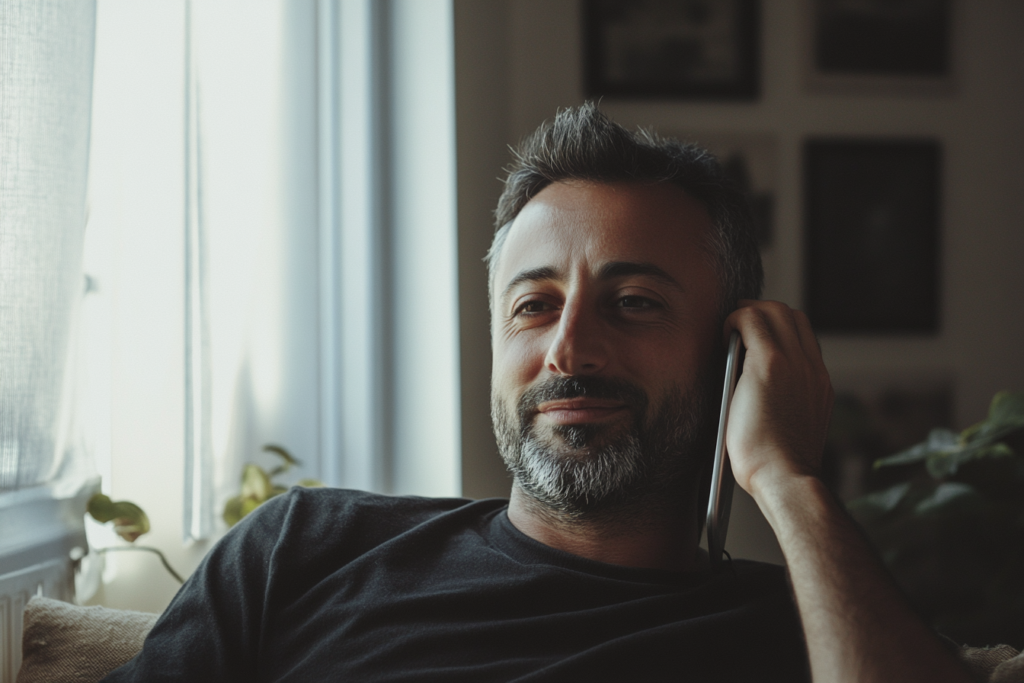
“What do you mean?”
“I mean, maybe we could talk. Maybe over dinner? If you’d like.”
“I’d like that,” she said. “I’d really like that.”
We made arrangements to meet in a few days. Lexi told me she’d used the money I gave her to buy new clothes and get a job. She was planning to move into an apartment once she received her first paycheck.
I couldn’t help but smile at the thought of having dinner with Lexi again.

That sounds like an intriguing setup for a story. Here’s a quick summary of the premise based on your description:
On his deathbed, the narrator’s grandfather gives him a key to a secret storage unit, setting off a chain of events that will change his life. When the narrator finally opens the unit, he discovers a treasure that not only makes him rich but also reveals hidden depths of the grandfather’s character, offering a poignant glimpse into the soul of a man he had always admired.
Would you like help expanding this further or refining any part of the story?




